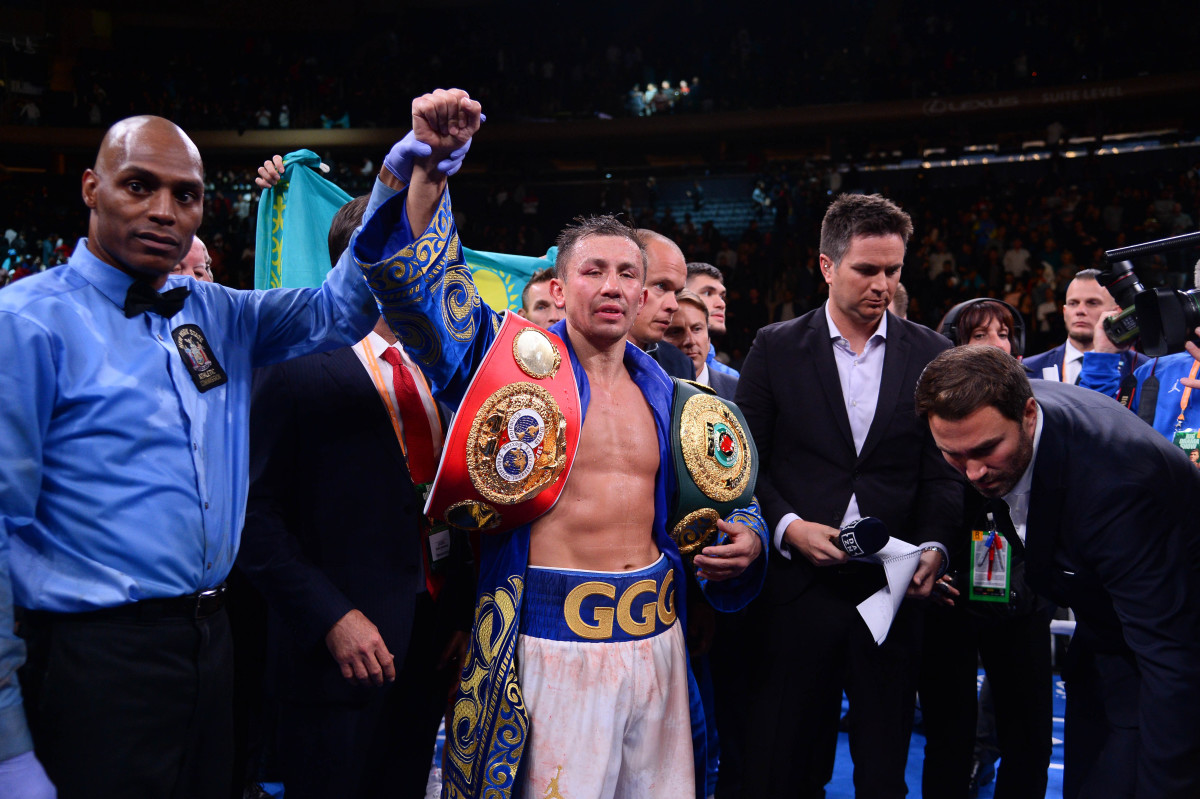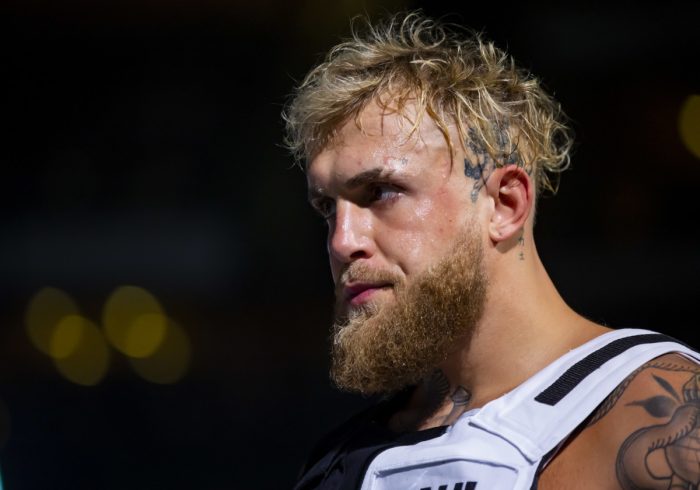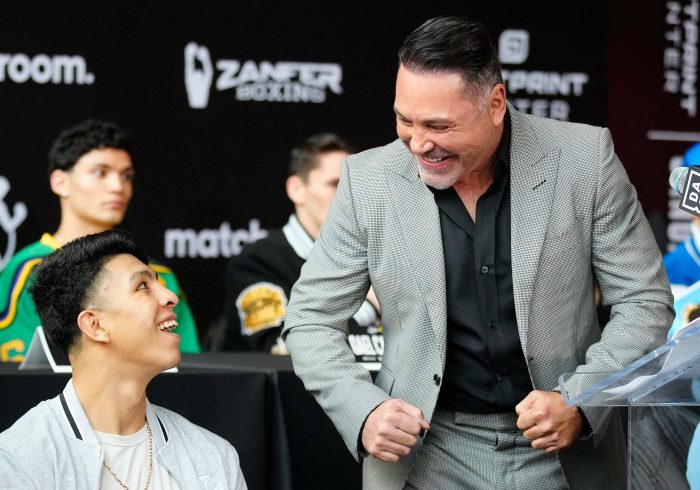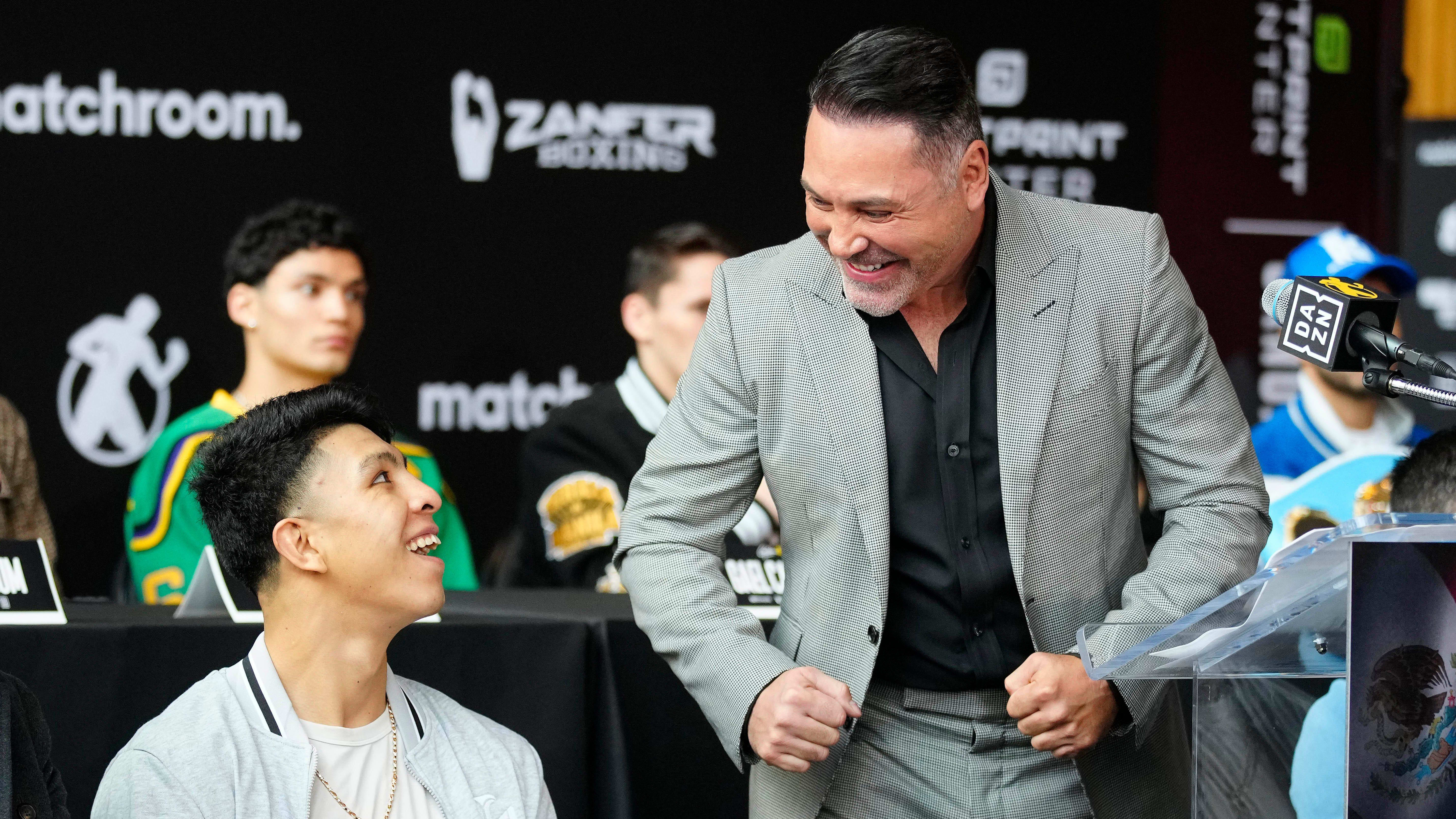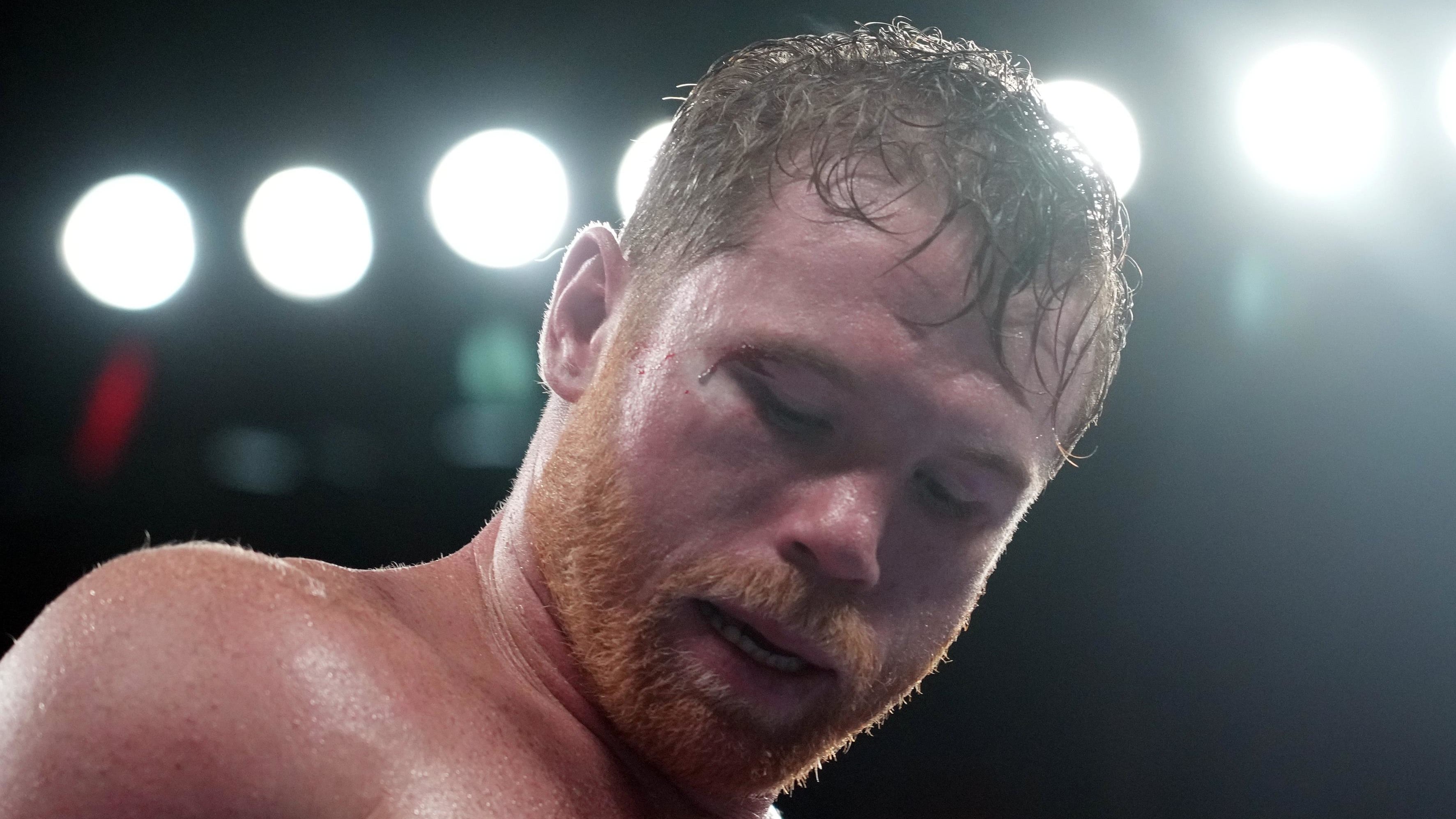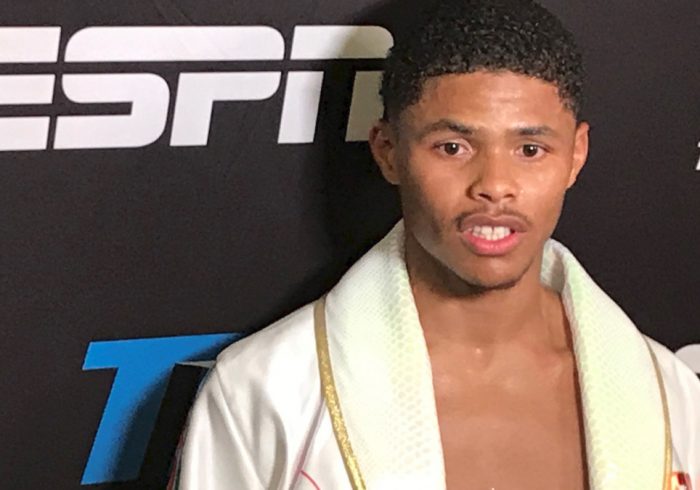LAS VEGAS–Gennadiy Golovkin was smiling. And why shouldn’t he? More than three years after he last shared the ring with Canelo Alvarez, Golovkin, months removed from turning 40, was finally getting another shot. Moments after the obligatory stare-down that punctuated Tuesday’s grand arrivals, Golovkin broke out into a toothy grin.
“I stopped hoping [the fight would happen] at some point,” Golovkin said. “I’m happy it is.”
It has been 10 years since Golovkin burst onto the U.S. boxing scene, turning a small casino in upstate New York—and the HBO cameras that traveled there—into a stage to introduce himself. He knocked out Grzegorz Proksa that night. Gabriel Rosado, Matthew Macklin and David Lemieux were among the dozen others he stopped right after. He became a compelling attraction, drawing in fans with brutalizing power, endearing himself to them with broken English that yielded quirky catchphrases like “good boy” and “big drama show.”
His star rose quickly. Yet in recent years, it has slowly flamed out. Golovkin has fought four times since his loss to Alvarez in 2018. He beat an overmatched Steve Rolls. He won a narrow decision over Sergiy Derevyanchenko, reclaiming a piece of the middleweight crown. He defended it against Kamil Szeremeta, an inferior mandatory challenger. He unified the 160-pound titles earlier this year though he did it by stopping Ryota Murata, the weakest of the middleweight titleholders.
The fighter who once owned boxing’s biggest stages has largely vanished from them.
On Saturday, he will be back. Canelo-Golovkin is about more than Alvarez’s four middleweight titles. It’s a grudge match. The bad blood has been boiling since 2018, when Alvarez tested positive for a banned substance and Golovkin used it to cast doubt on all of Canelo’s accomplishments. Alvarez responded by beating Golovkin—cleanly—in a rematch. He then spent years denying Golovkin a third fight—and the massive payday that came with it.
Alvarez, usually mild-mannered, has been anything but in recent weeks. He has called Golovkin an “asshole.” He says this third fight is “personal.” He told a small group of reporters this week he intended to punish Golovkin. He spoke passionately about becoming the first fighter to knock Golovkin out. Vowed Alvarez, “I’m going to end his career.”
“I don’t pay attention to any nonsense that he is saying,” Golovkin said. “I stopped paying attention a long time ago.”
This fight is important to Alvarez. He wants a definitive win against his longtime rival. And he wants to regain the momentum he lost in May, when he fell to Dmitry Bivol, his first loss in nearly a decade. “Nobody likes to lose, right?,” Alvarez said. “But it is what it is. It’s boxing. I keep [moving] forward, training hard and that’s it. Next move.”
For Golovkin, perhaps, there is more at stake. Golovkin is in the twilight of his career. He says it won’t end on Saturday (“I have certain plans regardless of the outcome of this fight,” Golovkin said), but he has acknowledged that his days of hunting mega fights may be over. He has spoken about fighting in his native Kazakhstan. In London. In Australia. He has a pair of 160-pound titles and will be a broadcast free agent, but the idea that he could defend them against Jermall Charlo or stay at super middleweight to take on David Benavidez feels like wishful thinking.
A trilogy-completing fight with Alvarez could be his last stand.
For Golovkin, this fight is about legacy. It’s popular to suggest that Golovkin, whenever he retires, is a first-ballot Hall of Famer. And he’s well credentialed. He’s a two-time middleweight champion with 22 title defenses on his resume. He has unified the division, twice. He’s one of the most destructive punchers of this generation, with 84% of his fights ending in a knockout.
But a deeper dive into his resume is revealing. Golovkin’s best win came in 2017, when he defeated Daniel Jacobs. Before that, there was a knockout win over David Lemieux. After that? Kell Brook? A blown-up welterweight. Daniel Geale? An ex-titleholder on his last legs. It can be argued—and everyone in Golovkin’s orbit would—that Golovkin deserved the win in the first fight with Alvarez. It can also be argued he earned a loss in a rock ‘em sock ‘em robot fight with Derevyanchenko. In recent years, Golovkin had a chance to burnish his resume with fights against Charlo, Demetrius Andrade and Jaime Munguia. He elected the likes of Rolls, Szeremeta and Murata.
A win Saturday changes everything. It will make Golovkin the undisputed champion at super middleweight, a distinction he could not achieve at middleweight. It will give him an official win over Canelo who, even after the loss to Bivol, has a case to be still called the pound-for-pound best. It will settle one of boxing’s best rivalries—at least until someone with deep pockets attempts to lure Golovkin and Alvarez back into the ring next year.
Golovkin knows what he is for on Saturday. “We know each other very well,” he says. “It is going to be a very tough fight for both of us.” He has looked vulnerable to the body in recent fights and Alvarez, 32, remains a hellacious body puncher. He will be challenging Canelo in Las Vegas, a city that, even in defeat, always seems to afford Alvarez favorable judging.
The task is formidable. Golovkin believes he still is, too. He grins at the suggestion he is the underdog. “Please stop talking to [Alvarez’s promoter] Eddie Hearn about the fight,” Golovkin said. Ten years ago, Golovkin dazzled a U.S. audience with a spectacular performance. On Saturday, he will attempt to summon one more.
